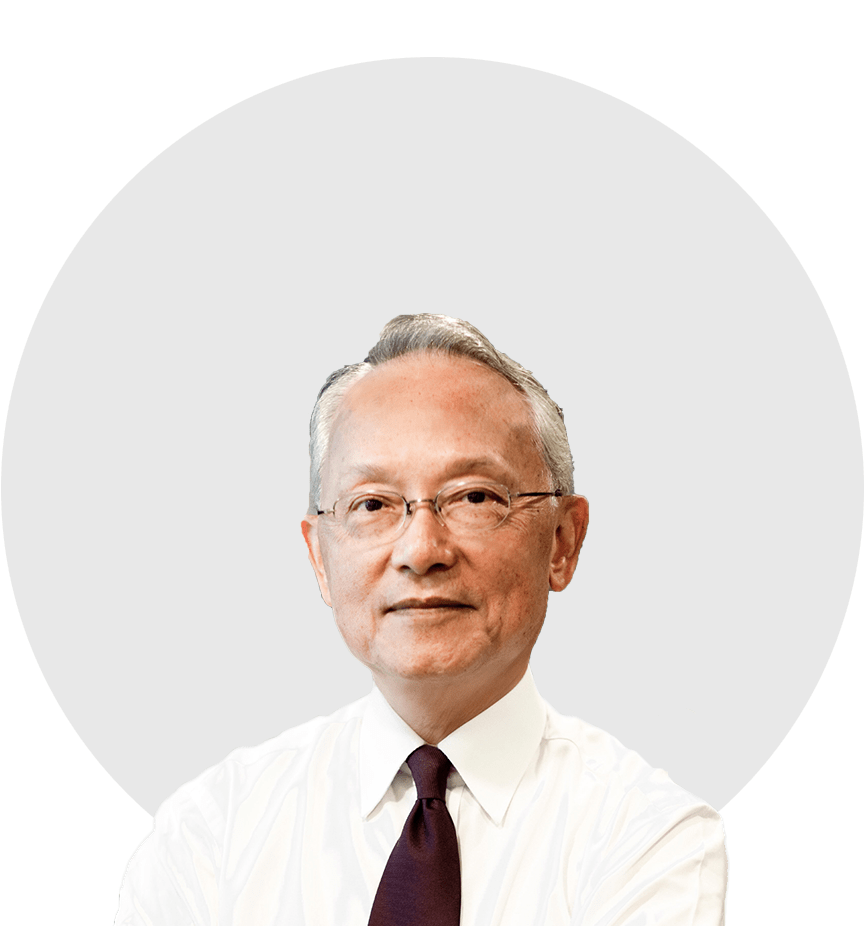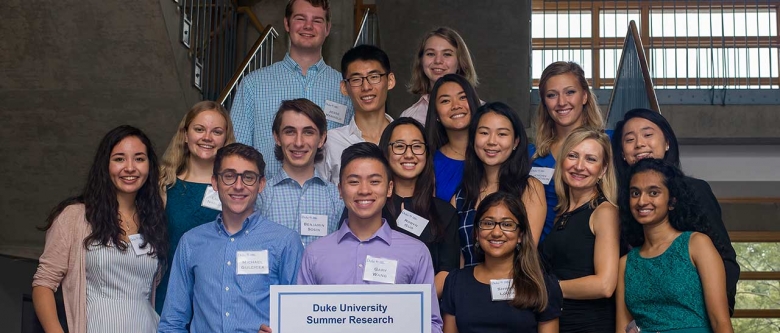
Huang Fellows Program
The Huang Fellows program is not currently recruiting new cohorts. Current Huang FellowsOur legacy Huang Fellows Program trained students to understand science in the context of and in service to society. Through their participation in the program, Fellows learned how to integrate ethics, policy, and social implications into their scientific research. This highly selective program fosters a community of accomplished undergraduate scholars who will be trained in the sciences and grounded firmly in the liberal arts–and who will be well prepared to serve as leaders in sciences and the biomedical professions. The program is supported by a grant to the Duke Initiative for Science & Society from Dr. Andrew Huang.
Brief biographies of our Current Huang Fellows can be viewed here.
The summer program is modified from year to year, largely based upon feedback from the Fellows. The Fellows write reflections on the seminars, guest lectures and enrichment activities, which provide insights into the programming. These reflections can be found on the Student Media page.
During the school year the Huang Fellows program sponsors a series of book talks, film screenings and other activities. In the spring, the Fellows organize and run a symposium on a current topic of science and technology policy. A mentoring program pairs the newly selected Huang Fellows with more senior members of the program.
Program Highlights
- Immersive science or policy lab placement in the summer before sophomore year
- Seminar Series concurrent with lab placement
- Science Symposium at the culmination of the summer experience
- Year-long programming during sophomore, junior, and senior years
- Publishing opportunities
- Mentorship by other fellows
- Housing is covered for the summer and a stipend for living expenses will be provided by the program
Huang Fellows are required to participate in the program during the summer following their freshman year, unless they are already members of a Duke fellowship program that requires them to be away from Durham during some or all of their freshman summer.
Qualities of a Huang Fellow
- Academic excellence in the pursuit of scientific knowledge and understanding
- Demonstrated desire and commitment to productive and constructive collaboration with others
- Commitment to science in the service of society
- Emotional Intelligence
- Openness to learning from others, gathering multiple perspectives, and standing outside of your comfort zone
- Potential for leadership in the responsible use and application of science in society
We are currently not accepting applications for the the 2023-24 Academic Year
Quick Links
About Dr. Andrew Huang
Dr. Andrew Huang, Professor of Medicine at Duke since 1982, has had an abiding interest in the intersection of the humanities with the practice of medicine, which is the most human (and we hope humane) of all the sciences. His life makes vivid the importance of this link in many ways: first of all in his own clinical practice but also in many professional initiatives he has taken. See his bio for more details.
Dr. Huang’s experiences demonstrate that while medicine demands rigorous discipline in science, it should always be personal. Regardless of the insights bestowed by innovative genomic technologies and bioinformatics, caring for patients can never be separated from their personal needs and who they are. Personalized medicine is both compassionate medicine and precisely relevant medicine, hence the impetus for exploring the intersection of professional medical practice with humanities and leadership, as embodied by the fellowship.




